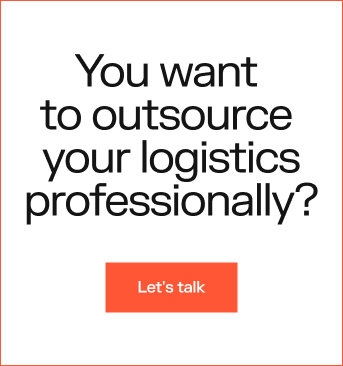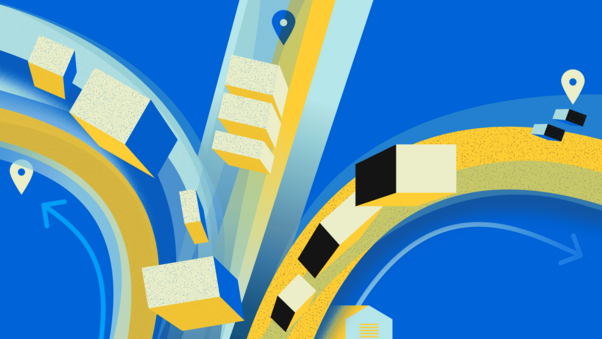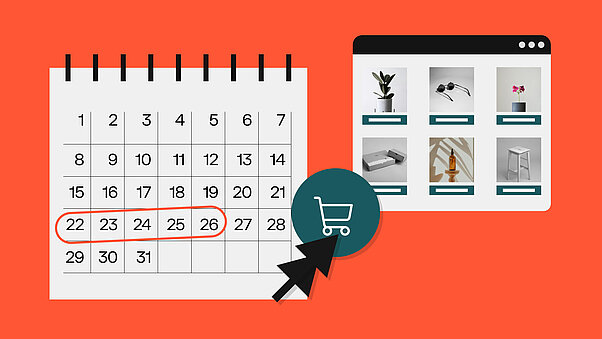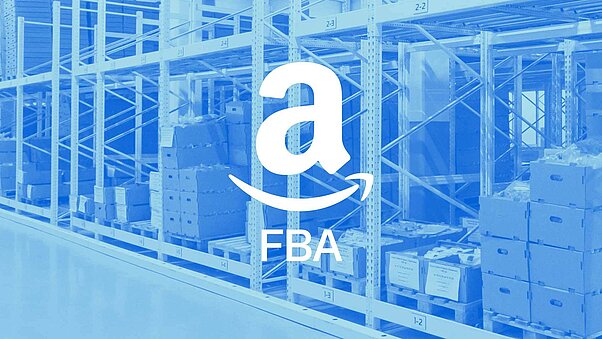The difference between D2C and B2C in e-commerce and logistics
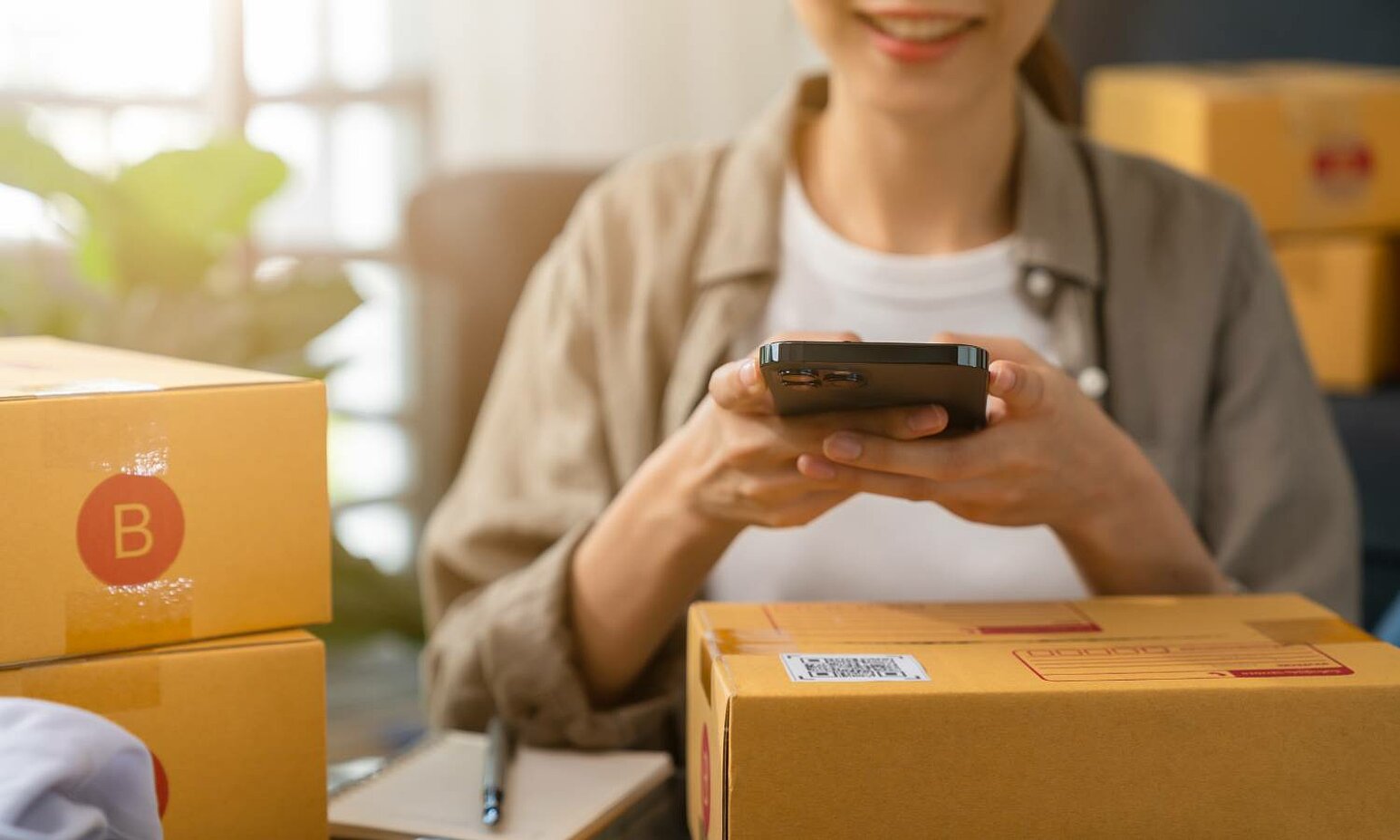
The disadvantages of B2C fulfilment:
1. non-transparent effort:
Even if others sell your products: Coordinating the supply chain from your suppliers, to the distributor and possibly to your customers can be complex and challenging.
2. quality control:
It is important to ensure that the products reach your customers in perfect condition - which requires careful monitoring and quality control. Often you have little control over how retailers treat customers who buy your products.
3. returns:
An efficient returns processing system is crucial to avoid any negative impact on the customer experience. Some retailers cannot guarantee this. The reputation of your brand could be damaged as well as that of the seller.
4. data protection:
B2C fulfilment requires handling sensitive customer data such as credit card information and shipping addresses, which carries risks. It's crucial that your trusted sellers take steps to protect this data!
Is D2C the future of e-commerce?
Due to the undisputed advantages of the D2C model, many consider it to be the future of e-commerce. But is it also superior to the classic B2C sales strategy? What makes D2C stand out?
One important point is the control over pricing and product range. With D2C, this is entirely up to the manufacturer! By not using middlemen, they control prices and the variety of products they offer. This sets their brand apart from the competition and maximises profit margins. D2C also reduces their dependence on retailers, giving them even more flexibility in distribution channels and strategies.
![[Translate to EN:] d2c Fulfilment Anbieter](/fileadmin/_processed_/9/0/csm_LogistIk_auslagern_Fulfillment_Oursourcing_Lager_Paket9_9636fa068e.jpg)
D2C will nevertheless not be the best choice for all businesses, as with little experience and low awareness, business may be slow. Some products, especially bulky ones, are probably better off in the branches of specialised shops. Other manufacturers accept certain discounts on their margins in exchange for retailers taking over the sales and logistics of their goods.
But if companies have the right resources and skills to potentially succeed in the D2C business - including a strong brand, an effective marketing strategy and a professional logistics partner - at least a multichannel sales solution with D2C and B2C is possible!
With a fulfilment provider like us at your side, you combine the best of both worlds - you sell your products directly to customers and we take care of all your logistics, including returns handling.
By the way: We are Europe's largest D2C fulfilment provider and specialise in this form of sales strategy. We take care of the logistics for over 1450 companies and enable unhindered growth through our automated, scalable logistics system.
Do you have any questions? Looking for a D2C specialist? Jackpot! Just write to us.
Sources
Pictures:
Logsta / Quivo © 2024
pixabay
Canva
What are the differences between D2C vs B2C, especially in terms of e-commerce and it's logistics? Is D2C suitable for your e-commerce business?
Here you can find out everything about direct-to-consumer and why this sales strategy has great potential to establish itself as a serious alternative to B2C business.
- What does D2C and B2C mean?
- What is the difference in logistics between D2C and B2C?
- The advantages of D2C Fulfillment
- The disadvantages of D2C Fulfillment
- The advantages of B2C fulfilment
- The disadvantages of B2C fulfilment
- Is D2C the future of e-commerce?
What does D2C mean and what does B2C mean?
- D2C (Direct-to-Consumer) means that producers sell their goods directly to end customers. No other trader is interposed.
- B2C (Business-to-Consumer) means that producers sell their goods through another company, such as retailers or marketplaces like Amazon.
What is the difference in logistics between D2C and B2C?
- D2C and B2C are very different in their sales processes and logistical approach:
D2C is a sales model where you as a manufacturer sell your products directly to the end consumer without going through the intermediate step of a retailer. It gives you complete control over your logistics and the customer experience. You can design, brand and package your packages according to your own wishes.
This way you create a unique experience for your customers and stand out from the crowd. It also increases your margin and profit, because there is no third party between you and your customers. However, you have to take care of all the marketing and distribution yourself.
Of course, the logistics are then up to you - with all their effort. The other option would be to commission a fulfilment provider specialised in D2C, such as Quivo.
![[Translate to EN:] D2C vs B2C Comparison](/fileadmin/_processed_/a/f/csm_D2C_vs_B2C_Comparison_f8171c4c57.jpg)
B2C refers to the model where you as a producer sell your items through a third party company, or an online marketplace. This can make the process easier and more convenient for you and your customers. They like to buy your product while shopping in a shop or they might already have a customer account at e.g. Amazon.
In addition, retailers put your product on their sales platform, which can have a much wider reach than your website and thus appeal to more customers.
But it also means that you have less control over the distribution and customer experience. (Online) retailers and marketplaces tend to package and ship all packages very uniformly in their own corporate style. Companies' own brands are presented less strongly.
Is D2C or B2C more suitable for your e-commerce business?
It very much depends on what products you sell!
Let's look at the advantages and disadvantages of both sales models and you'll definitely get a better idea of what works best for your business:
The advantages of D2C fulfilment:
1. customer loyalty:
You have a direct relationship with the customer and can gain a better understanding of their needs and preferences. The data you gain can be used for effective marketing as well as to increase customer loyalty in general.
2. more control:
The direct sales model gives you more control over the entire buying process and the customer experience that goes with it - from advertising to delivery and customer service. This way you can guarantee a consistently high quality of your brand and improve your reputation and customer satisfaction.
3. higher margin:
D2C allows you to increase your revenue because you avoid the intermediate step of a trader.
4. shortened supply chain:
By selling goods directly to consumers, you shorten the entire supply chain. Costs, CO2 emissions and often delivery times are reduced.
![[Translate to EN:] D2C Label](/fileadmin/_processed_/0/0/csm_D2C_vs_B2C__2__6739df9e8d.jpg)
The disadvantages of D2C fulfilment:
1. higher costs and effort:
Without the intermediate step of a retailer or distributor, it can be more expensive for your business to run fulfilment in-house as it requires more resources, such as storage capacity and staff.
Our expert tip:
For larger order volumes, it makes sense to look for a fulfilment service provider that takes over and automates your logistics. Then you can concentrate on your core business and don't have to deal with logistics issues.Normally, it costs at least the same as self-shipping.
2. scaling:
It can be more difficult to take fulfilment to a larger scale without the help of an experienced logistics company. Day-to-day logistics could become a bottleneck that slows down the growth of your business.
Again, there is a remedy in the form of a logistics provider like Quivo. Our flexible system is designed from the ground up to be scalable, so you can grow your logistics unhindered - even internationally.
3. market penetration:
Without access to a large network of traders, it can be more difficult to increase market penetration and reach new customer groups. You are largely dependent on your own advertising and collaborations to promote your products.
4. increased regulation:
Direct sales to end customers are usually subject to stricter requirements, especially regarding data protection and consumer rights. Depending on your industry, you should keep a close eye on these.
- D2C is undoubtedly an attractive sales method. It brings many advantages and can also serve as an omnichannel solution.
However, it brings challenges, such as higher costs for storage and logistics, or higher demands on your customer service infrastructure. You should carefully consider whether D2C is right for your e-commerce business and whether you would rather hand over your logistics to a fulfilment specialist to take care of it.
![[Translate to EN:] D2C Logistics](/fileadmin/_processed_/0/2/csm_D2C_vs_B2C__1__d27c71295b.jpg)
The advantages of B2C fulfilment:
1. costs:
Larger retailers through whom you sell your goods often work with fulfilment providers. This saves them costs by allowing them to benefit from the logistics company's experience, smoothly running infrastructure and efficient supply chain.
2. market penetration:
By gaining access to a network of distributors and retailers, your company can increase its market penetration and reach new customer groups. This gives you much greater exposure in one fell swoop - but usually faces broad competition.
3. customer experience:
B2C fulfilment ensures fast and reliable deliveries because merchants are highly experienced. This leads to higher customer satisfaction, which in turn can have a positive impact on your sales. In addition, many customers already have a high level of trust in established companies, which makes them more willing to buy your products from them.
![[Translate to EN:] D2C Fulfilment](/fileadmin/_processed_/c/7/csm_Logistik_auslagerung_3bbe34675e.jpg)



